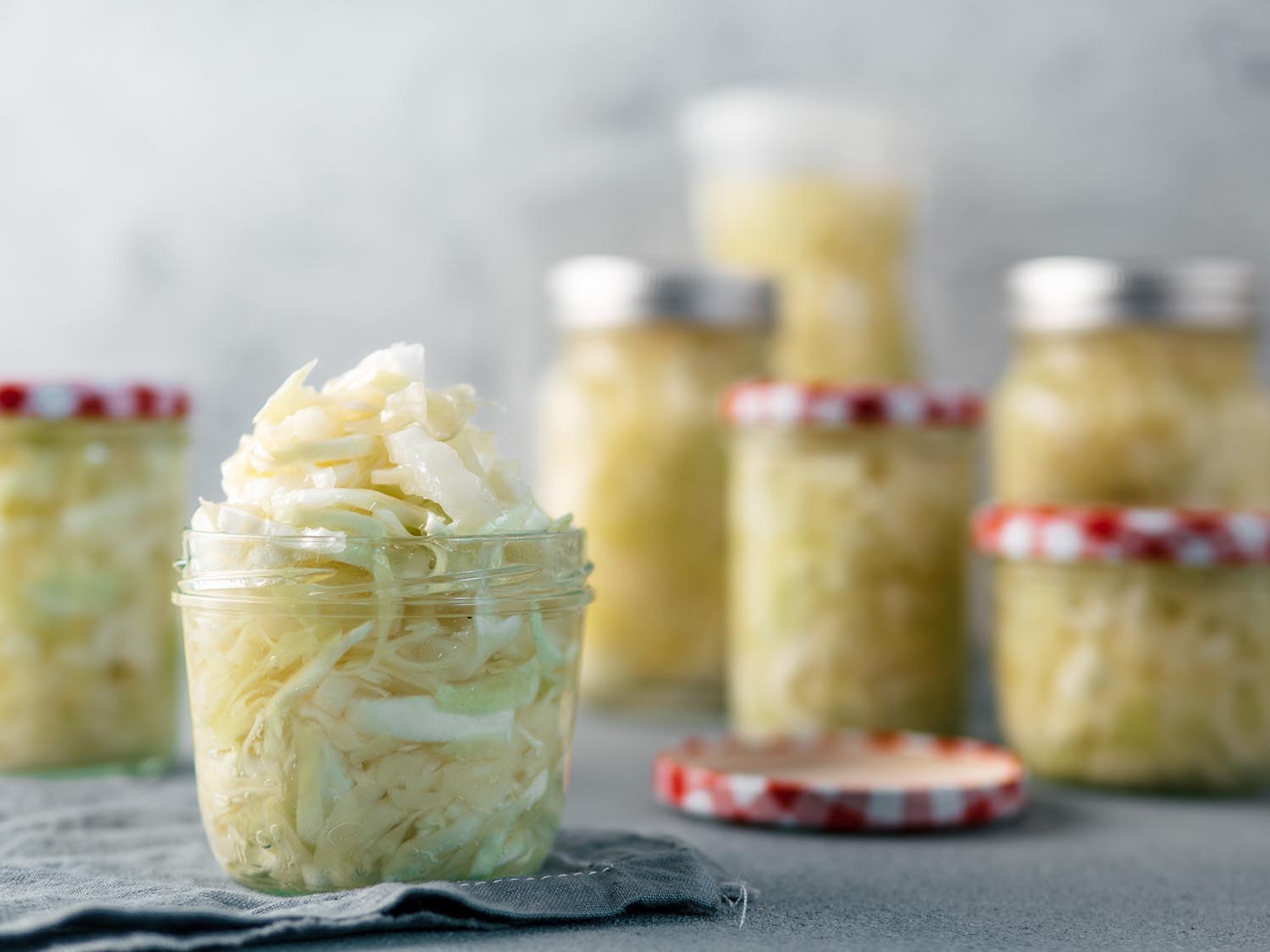Advertisement
Cooking with Fermented Foods
Delicious probiotic-infused dishes

1. The history of fermenting foods
Can you imagine German cuisine without sauerkraut or Japanese cuisine without miso? Worldwide, fermented foods such as these remain cherished and enduring for good reason. They’re not only delicious, but they’re also nutrient-dense and teeming with beneficial bacteria known as “probiotics” that can help enhance human health in myriad ways.

For centuries the process of fermenting foods was relied upon out of necessity—it was one of the few means of preserving foods in pre-industrial societies. Today, thanks to modern science’s confirmation of their outstanding health benefits, fermented foods are experiencing a global renaissance.
2. How fermented foods benefit our health

Why are scientists so impressed? Some of the benefits conferred by fermented foods seem to come from a group of cancer-preventive phenolic compounds that are generated by the process of fermentation itself. Evidence also shows that fermentation multiplies the bioavailability of the vitamins, minerals, and antioxidants naturally present in whole foods.
Conversely, it neutralizes certain “anti-nutrients” that occur naturally in some foods, such as the phytic acid in grains. That’s important because phytic acid can combine with valuable minerals in the intestinal tract and block their absorption.
However, what’s really putting fermented foods in the spotlight is their phenomenal probiotic content. Research reveals these benevolent micro-organisms may help lower blood pressure and cholesterol, reduce inflammation, improve intestinal health, enhance immunity, combat obesity, and reduce the risk for certain cancers.
What’s more, studies suggest they can also exert a positive effect on our psyche. Scientists have discovered certain probiotics in fermented foods may improve brain health and may help combat anxiety, stress, and depression.
3. Recipes with fermented foods

Clearly, with their cornucopia of health benefits, fermented foods are an essential addition to any diet. Incorporate them into your culinary repertoire by trying one of the following sure-to-please recipes.
- Vegan Kraut Skillet
- Vegetable Borscht with Kefir
- Carrot “Noodle” Salad with Lemon Miso Dressing
- Sweet and Sour Tempeh
- Spicy Chicken Skewers with Fennel Yogurt Sauce
In addition to these recipes, try adding fermented foods like kefir and miso to your everyday meals. Not sure where to start? We’ll tell you about seven fermented favorites from around the world.
4. Amazake

This traditional Japanese beverage, made from fermented rice, tastes like a delicious dairy-free malted milkshake. Don’t let the drink’s natural sweetness fool you; it’s extremely nourishing and teeming with B vitamins and digestive enzymes. Often blended with natural flavorings such as nuts, vanilla, or fruit, the drink can be enjoyed straight from the carton or used to make desserts such as puddings and pie fillings. It’s also terrific in smoothies.
5. Kefir

An Eastern European drink made by fermenting cows’ or goats’ milk with yeast and lactic acid bacteria, kefir is often compared to drinkable yogurt. However, this tangy liquid contains a more diverse population of bacteria than yogurt, making it a potent source of probiotics. You can purchase kefir plain, or flavored with various fruits and natural sweeteners. Many people enjoy it poured over their morning cereal or added to smoothies or soups.
6. Kombucha

Made from tea, sugar, bacterial agents, and yeast, this refreshing drink not only contains a plethora of healing micro-organisms, but is also rich in health-enhancing butyric and malic acids. Many different types of tea are used to make kombucha, each offering its own distinct flavor. The potent potable is best poured over ice and sipped as a rejuvenating pick-me-up.
7. Kimchi

Often referred to as “Korean sauerkraut,” this popular condiment is made of fermented vegetables—most commonly napa cabbage and daikon radish—with a variety of added spices, such as red chili flakes. Low in calories, high in fiber, and teeming with various Lactobacillus bacteria, kimchi adds nutritional punch and taste to burgers, sandwiches, tacos, and salads, or is served alongside meats and cheeses.
8. Miso

Commonly made from fermented soybeans combined with grains such as rice and barley, miso’s piquant paste comes in many varieties, offering different tastes and colors. It contains an abundance of living enzymes, beneficial bacteria, and minerals. Miso adds an intriguing flavor to salad dressings, gravies, and scrambled eggs.
9. Natto

This “love it or hate it” Asian delicacy made from fermented whole soybeans has a pungent aroma that has often been compared to old socks. Don’t let its aroma intimidate you. Natto is one of nature’s richest sources of bone-building vitamin K and health-promoting Bacillus subtilis bacteria. Its robust taste pairs perfectly with mild rice dishes and soba noodle salads, and when added to mayo it makes a hearty sandwich spread.
10. Sauerkraut

“Live” raw sauerkraut is a world apart from the pasteurized pickled sauerkraut you find on grocery shelves. Live cultured sauerkraut is made by lacto-fermentation, and neither vinegar nor heat is involved in the process. This fermentation process produces the probiotics abundant in the popular condiment, as well as its satisfying flavor. Sauerkraut lends a tangy zip to burgers, salads, meat dishes, and tacos.




